While listening to personal stories of loss, healing and recovery, the room full of 750 community leaders at The Royal’s Leaders for Mental Health Breakfast took a brief moment to collectively pause, get up on its feet and take a unifying deep breath together.
“See? I feel better already,” said community leader Gord Cudney, who led everyone in a long exhale before launching into his formal remarks on stage yesterday morning.
And that’s the kind of moment that makes The Royal’s breakfast special. Held at the EY Centre and presented by TechInsights, the gathering raised $600,000 for mental health research and care at The Royal.
The one-hour program was emceed by Invest Ottawa’s Sonya Shorey, who’s a board member with the The Royal’s Institute of Mental Health Research (IMHR). The audience heard from The Royal’s vice president of innovation and transformation, Dr. Kim Corace, who’s dedicated her career to advocating for improving mental health and substance use health care services that put patients first, and to scientist Dr. Tanya Halsall, who spoke about the need for better mental health research and care for young people.
Among those in the audience were long-time supporter Sharon Johnston, wife of former governor general David Johnston; Mayor Mark Sutcliffe and Kanata South Coun. Allan Hubley, the latter of whom lost his son to suicide in 2011; The Royal’s interim president and CEO, Pierre Noel; Steve West, chair of the board of the IMHR; and countless leaders from the business community.

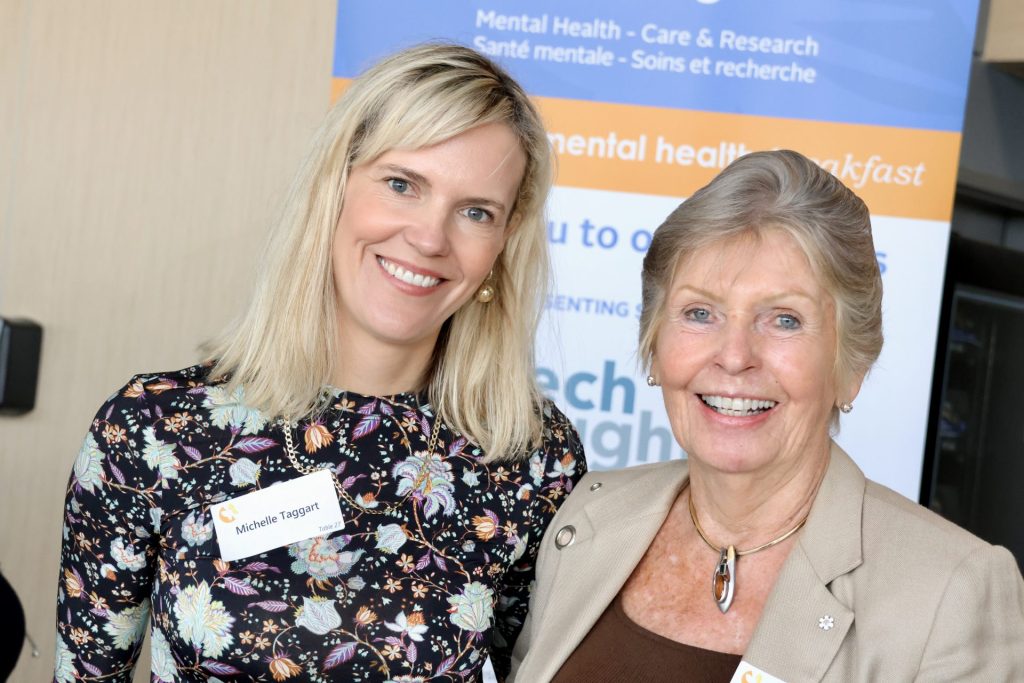

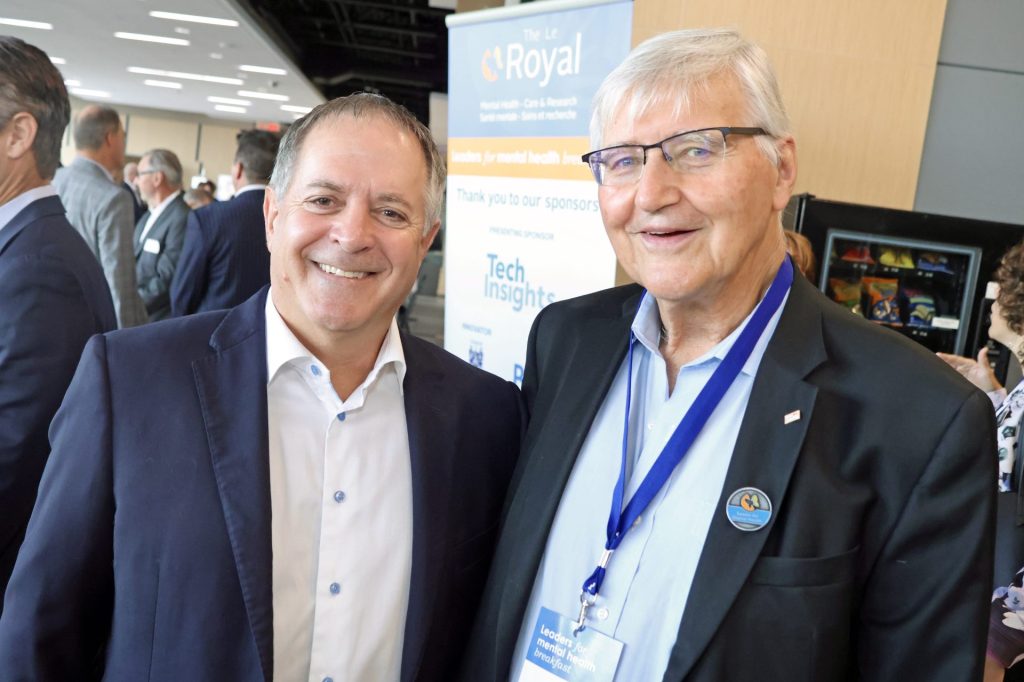
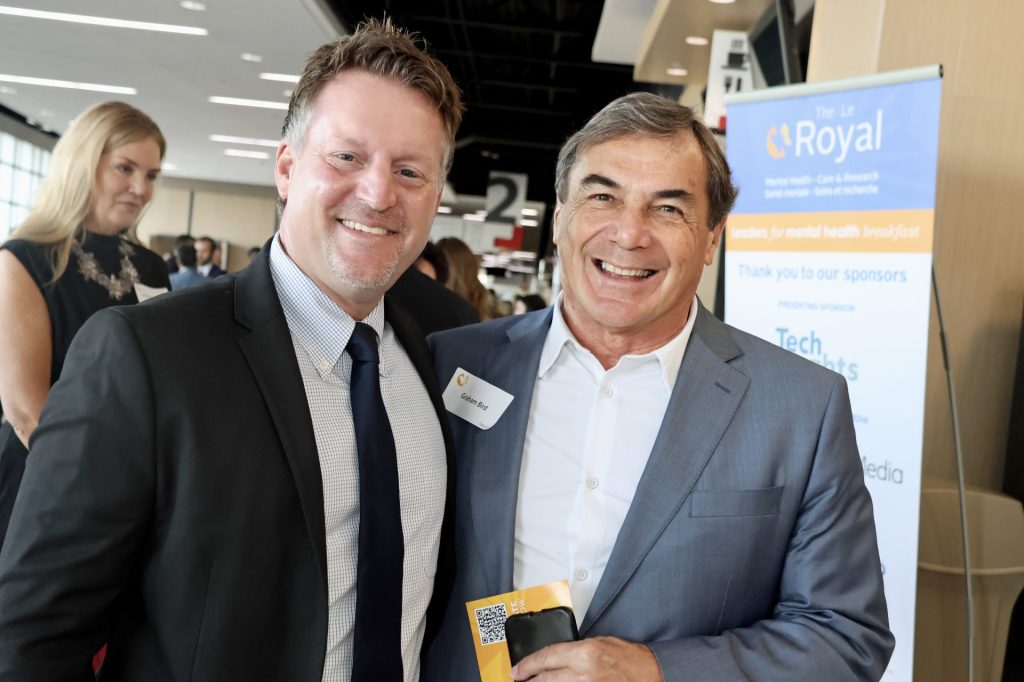

When it comes to mental health, there’s a significant underinvestment in research and care, The Royal’s foundation president, Chris Ide, told the room. “Some say our knowledge of the brain is a century behind our understanding of other illnesses, like heart disease and lung cancer. While our knowledge is growing, it remains limited.
“Accessing effective, evidenced-based care can and unequivocally should be simple and uncomplicated,” Ide continued. “Many who come to The Royal for help share that they do so at their darkest hour, when all hope seems to be lost.”
He spoke of the passion and dedication shown by The Royal’s scientists and clinicians as they work toward a future where mental health gets the same level of attention and investment as physical health. “Mental health care is not a privilege but a universal right.”

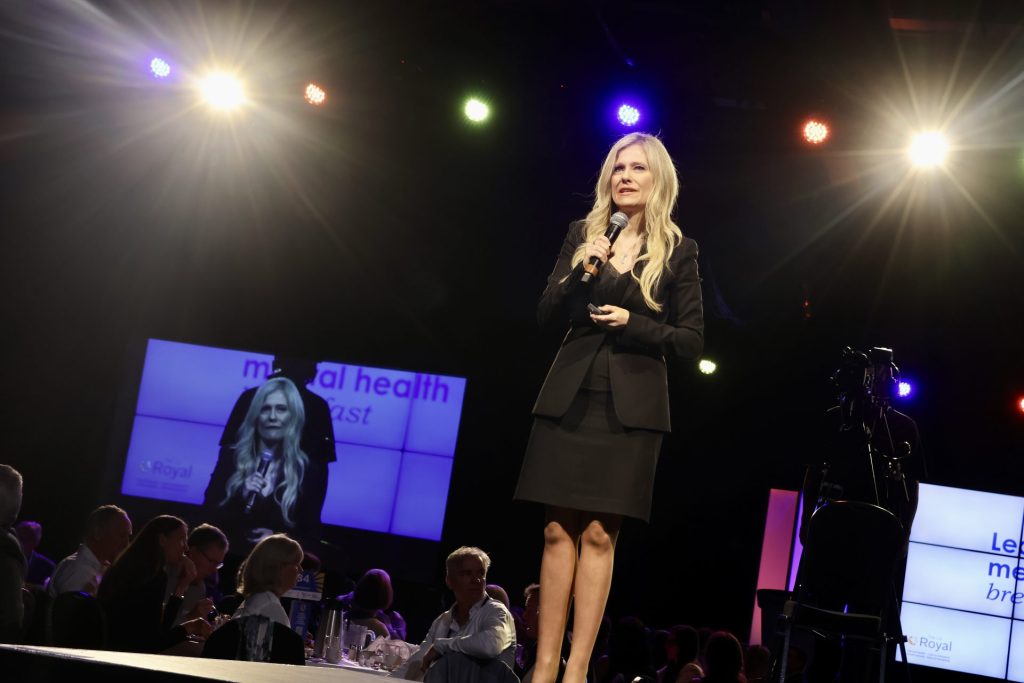


The speakers underscored the pressing need to mend the gaps in the health-care system and to provide better support to young people as they transition to adulthood. They also highlighted the crucial support family and friends can give, and the importance of supporting community providers, so that they can offer more specialized care. As well, the stories heard that morning stressed the need to accelerate research into personalized, life-saving care to better aid those individuals grappling with serious mental illness.
It was made clear that the effects of the pandemic on mental health and substance use have been profound.
It’s been five months since Lee Rose lost his partner, Charles-Éric Laperrière, to suicide. The community engagement manager for TD Bank shared the mental health journey that he and his partner had been on together. He spoke lovingly of their relationship and of their efforts to get treatment for his partner’s mental health challenges. “We were doing the work and putting in the effort; it wasn’t always easy but we were committed to each other and the journey we were on together,” said Rose. “But, it still wasn’t enough.”
Laperrière, who had worked in the food and hospitality industry, was only 31 when he died.
Rose said he continues to focus on gratitude as a way of dealing with his grief. “I consider things about him and our life together that I’m grateful for today,” said Rose, who also expressed his appreciation toward The Royal for its efforts to better understand mental illness and substance use, to better understand the brain, and to find innovative ways to help people like Laperrière.

Mark Taggart spoke via pre-recorded video about how his family staged an intervention to get him help for alcohol use. What had started as drinking and good times in university had turned into a problem by the time he hit his 30s, he said. The financial security advisor, who was treated at The Royal in 2020, recognized that the road to sobriety is not easy.
“There are so many people that go into recovery, they go into recovery for a little bit and, we like to say, ‘they go back out’, which means you go back out into the world and start drinking again, and stumble and stumble and stumble along, and then end up in a bad place.”
He pointed to business trips as being particularly dangerous because, when one is away from home and family, a couple of beers doesn’t seem like a big deal. “Every alcoholic will probably tell you if you could invent a pill that we could take that would allow us to drink ‘normally’, I’m sure we all would.”
Cudney took to the stage to commend Taggart for sharing his story. “Courage doesn’t always roar,” he said, quoting writer Mary Anne Radmacher. “Sometimes, courage is the little voice at the end of the day that says, ‘I will try again tomorrow’.
“Mark, what you’ve done today is a roar, and you should be applauded,” he told his brother-in-law of his inspiring action. “You’re an amazing person for putting yourself out there.”

Cudney acknowledged how hard it can be to put “one foot in front of the other” in the face of relapses, perceived judgments, stigma “and that horrible thing called shame that we all know about.
“This is the courage that goes, I think, unnoticed and definitely underappreciated in those of us who suffer. Mark, this is the courage that we want to celebrate today; your strength in the daily struggle that is your illness and, during the quiet times, taking it one day at a time.”
Cudney, who received an Inspiration Award from The Royal in 2018 and is former board chair of The Royal Ottawa Foundation for Mental Health, encouraged everyone to recognize the ‘small-c’ courage surrounding them in the room, in their family, at work and in the community. “It’s all of our jobs to notice this courage, to show each other empathy, to not judge and to open our hearts to the struggles of those around us.”
The Royal leads by example, said Cudney of the work the clinicians and researchers are doing to help the community have access to cutting-edge research and effective treatment. He also motivated the attendees to think about the courage demonstrated that morning as they made a donation to the cause. “I promise it will make a difference,” he said of their generosity.
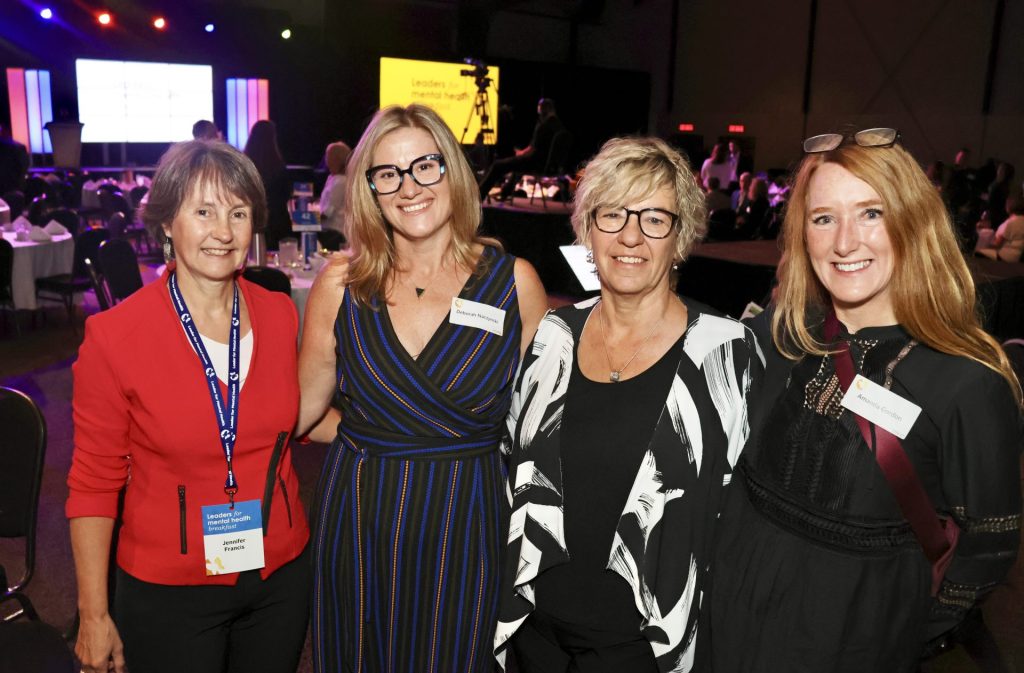


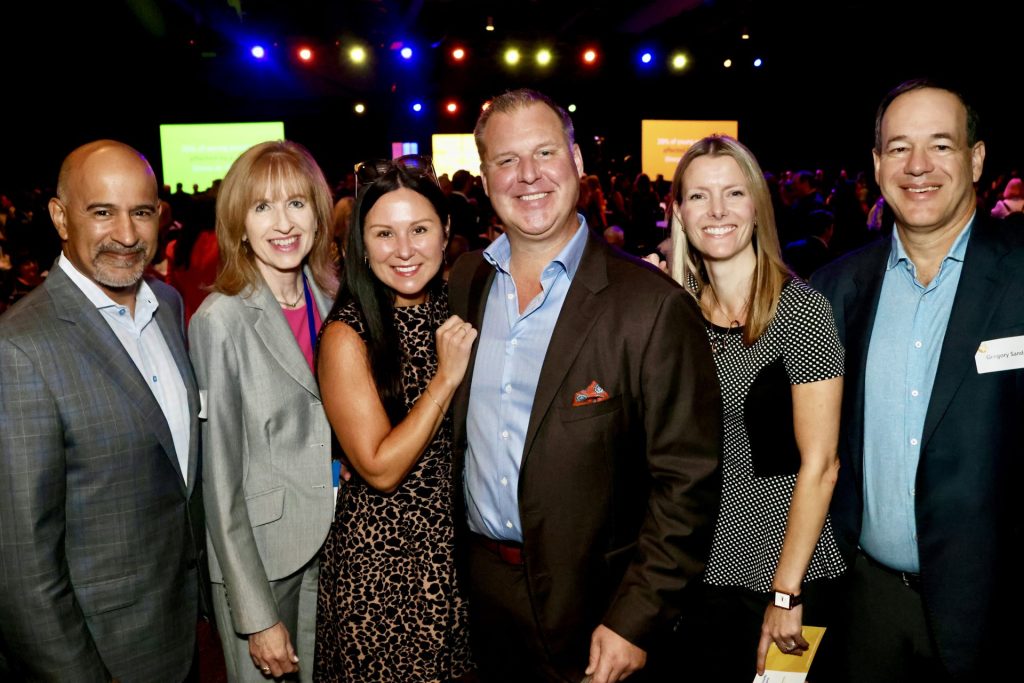

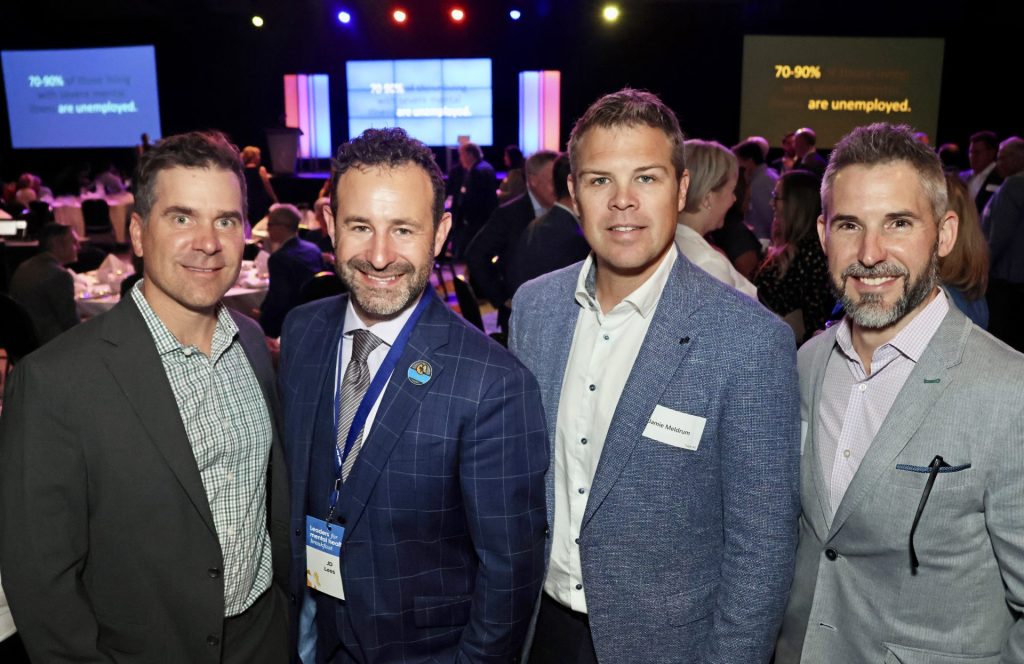
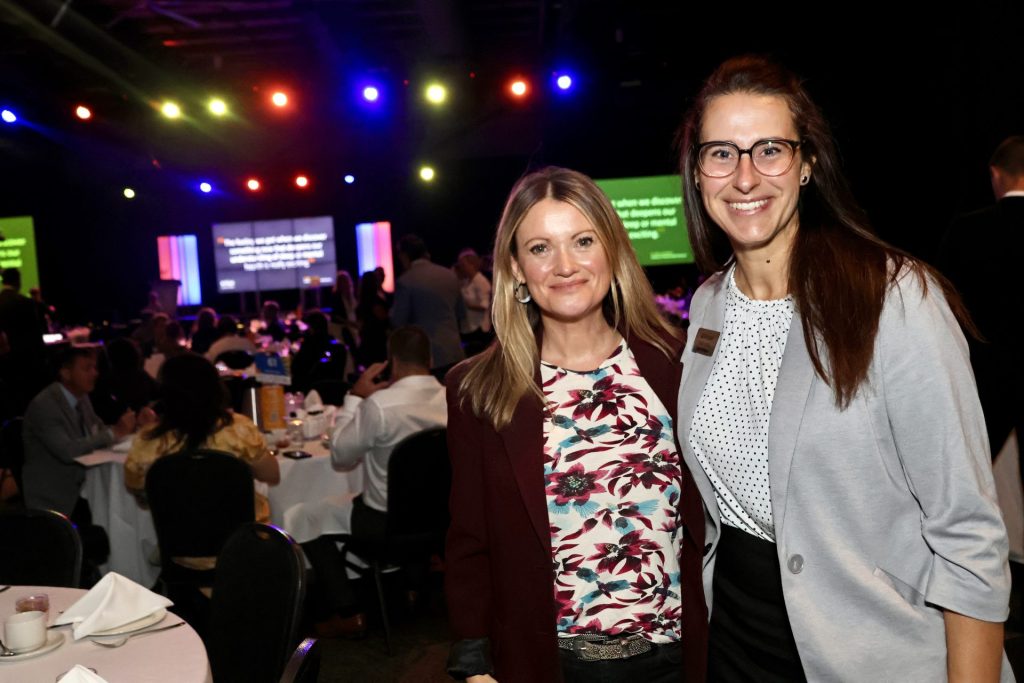

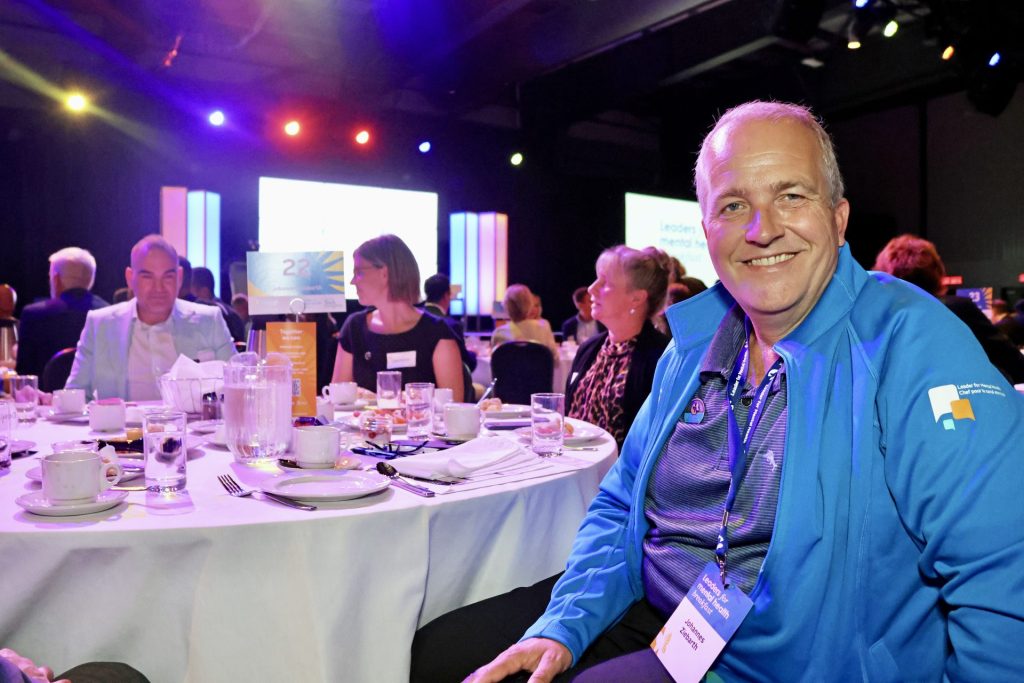
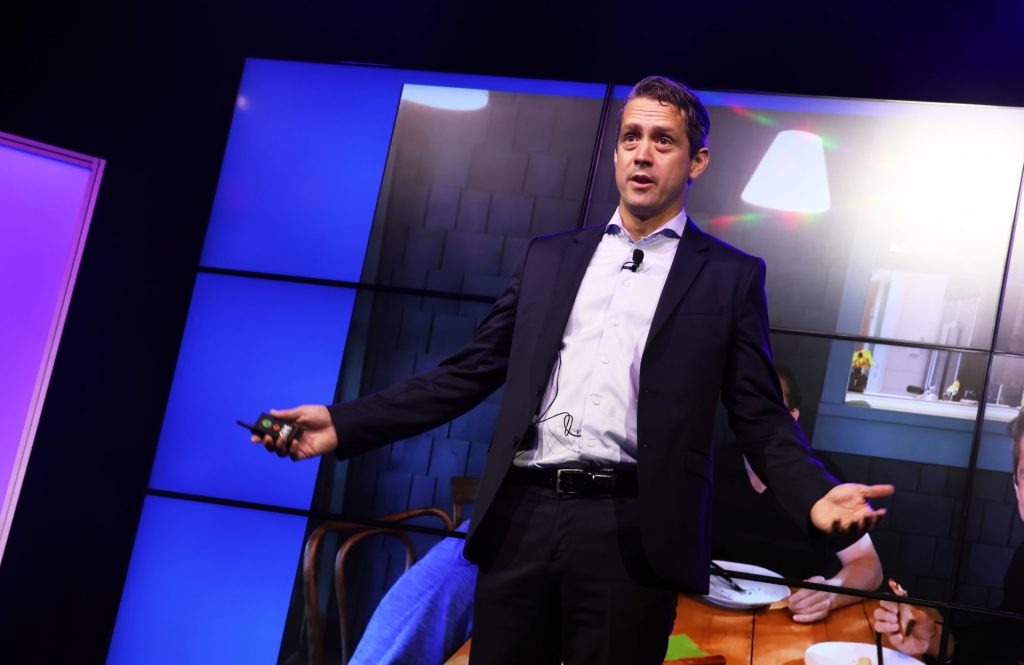
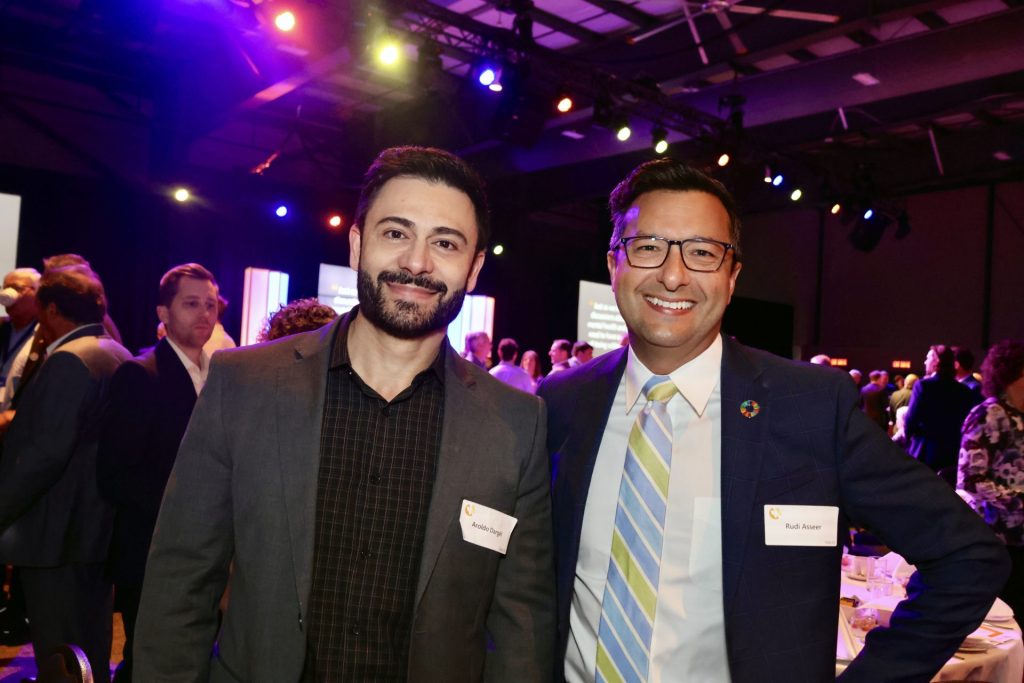

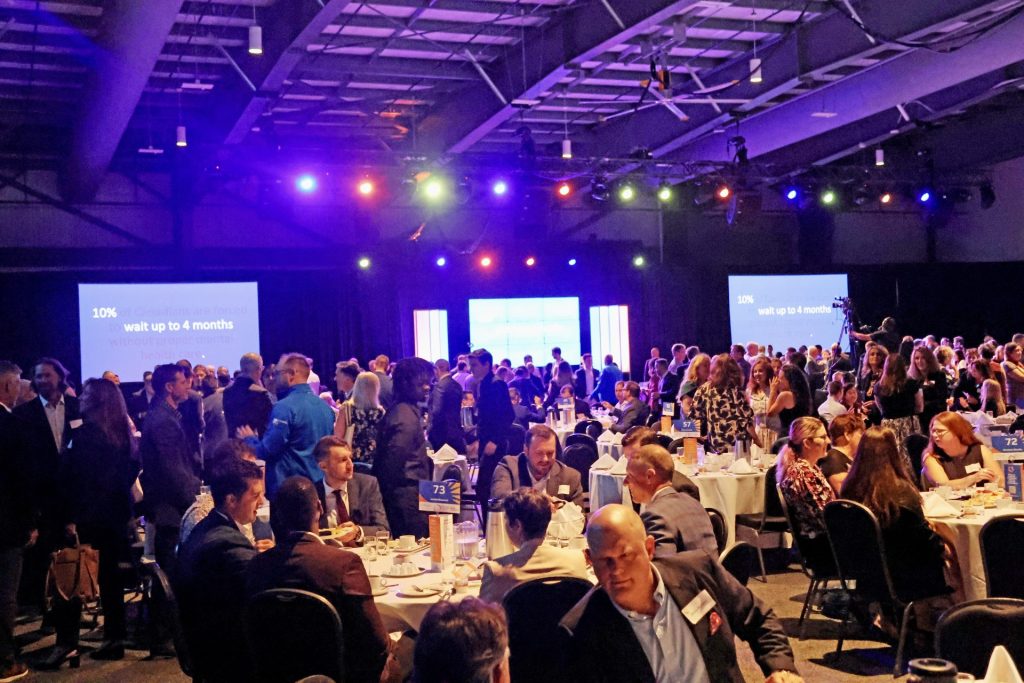
caroline@obj.ca




